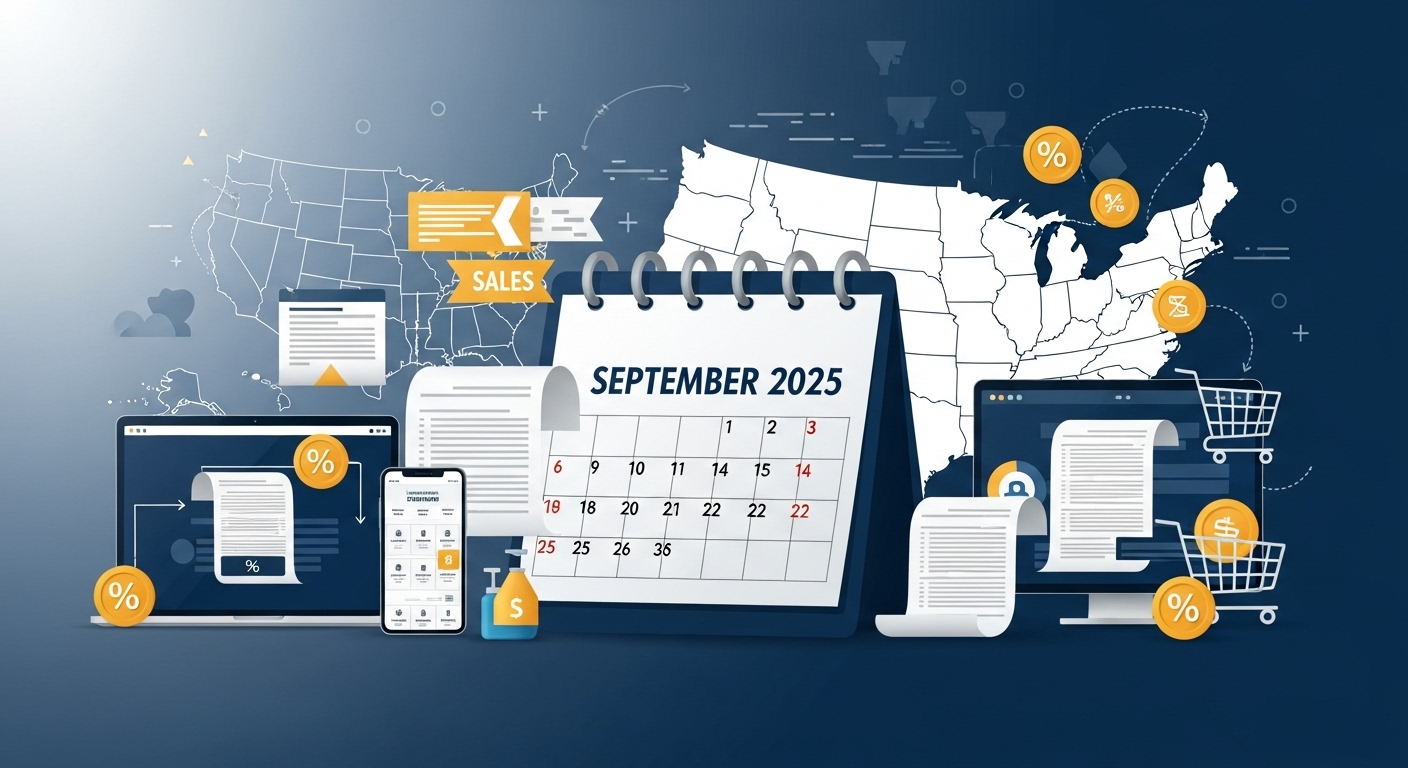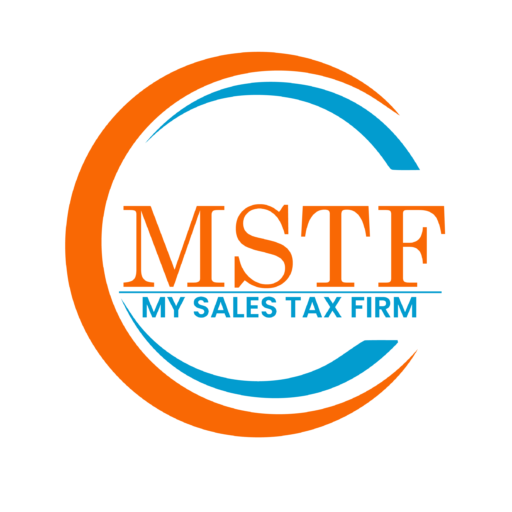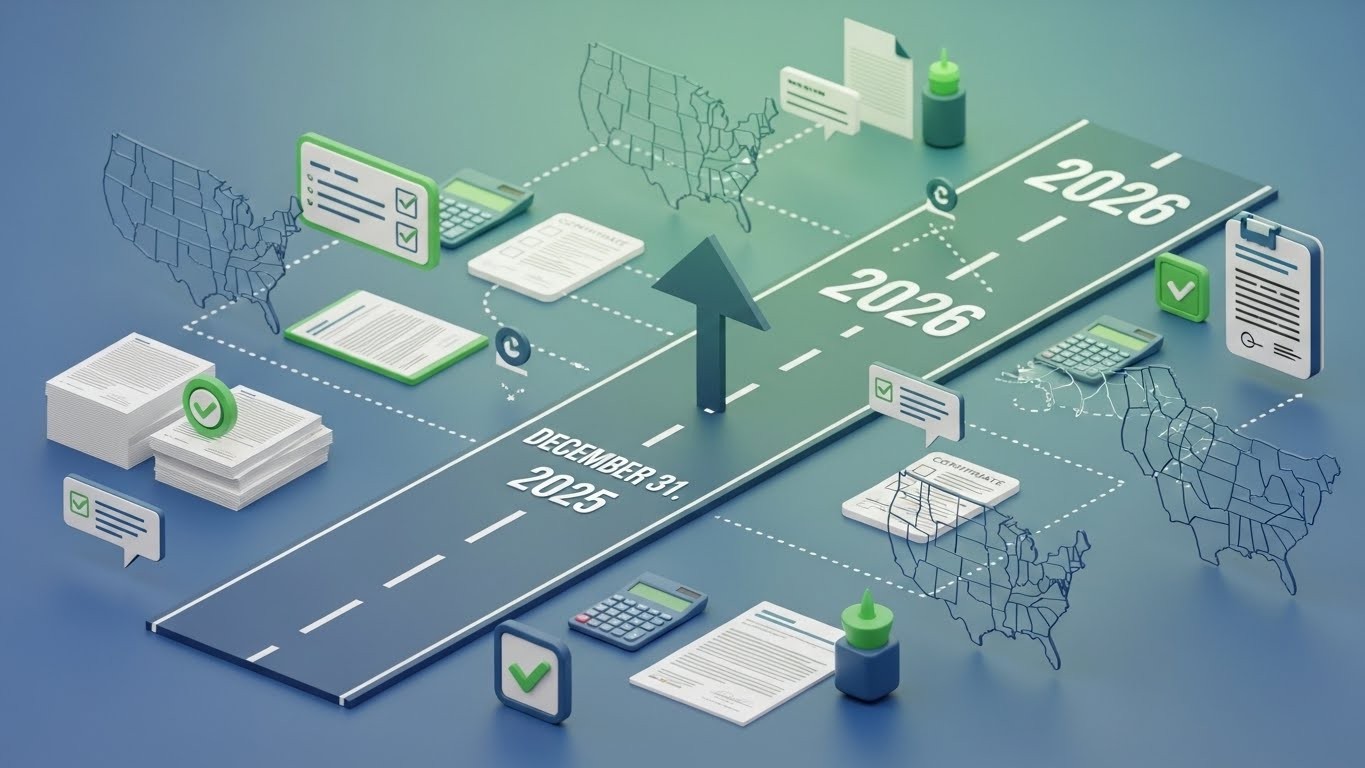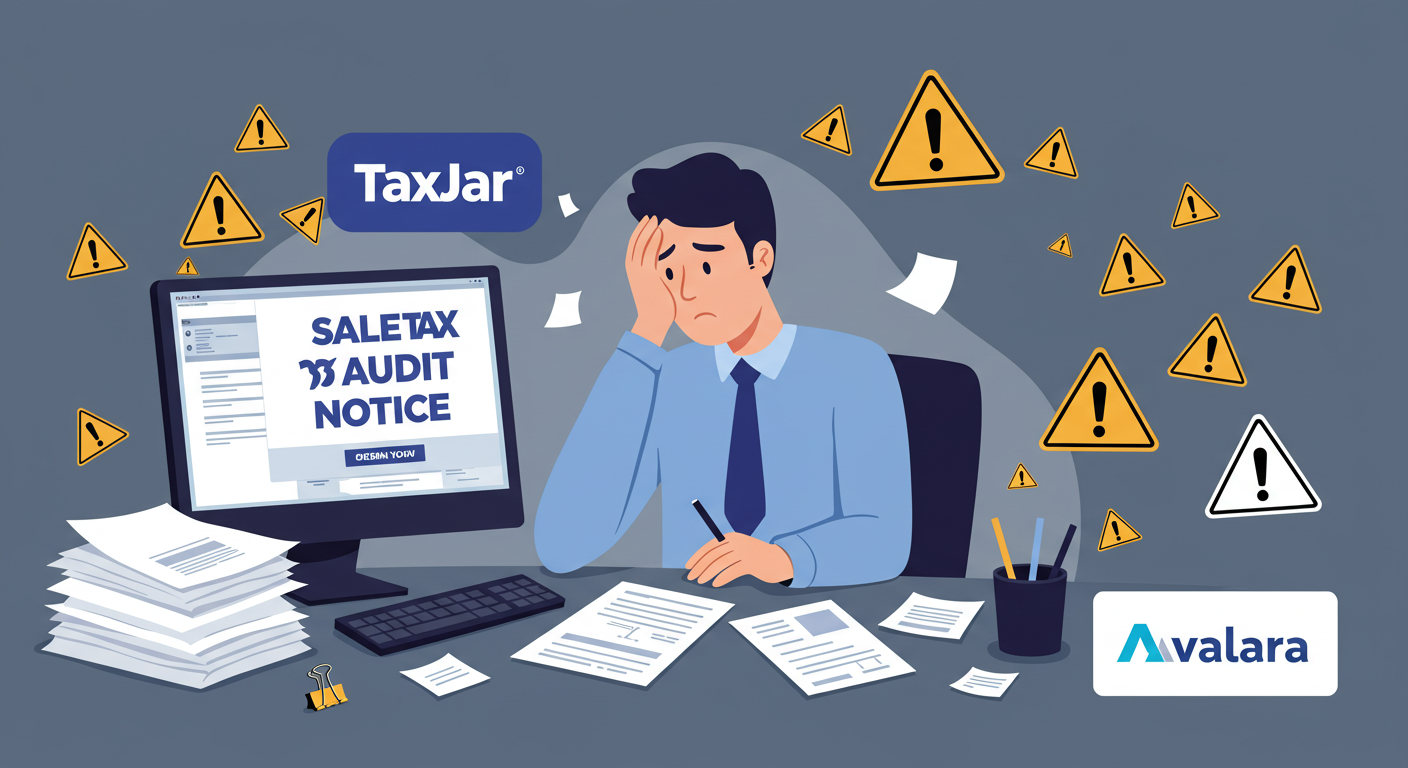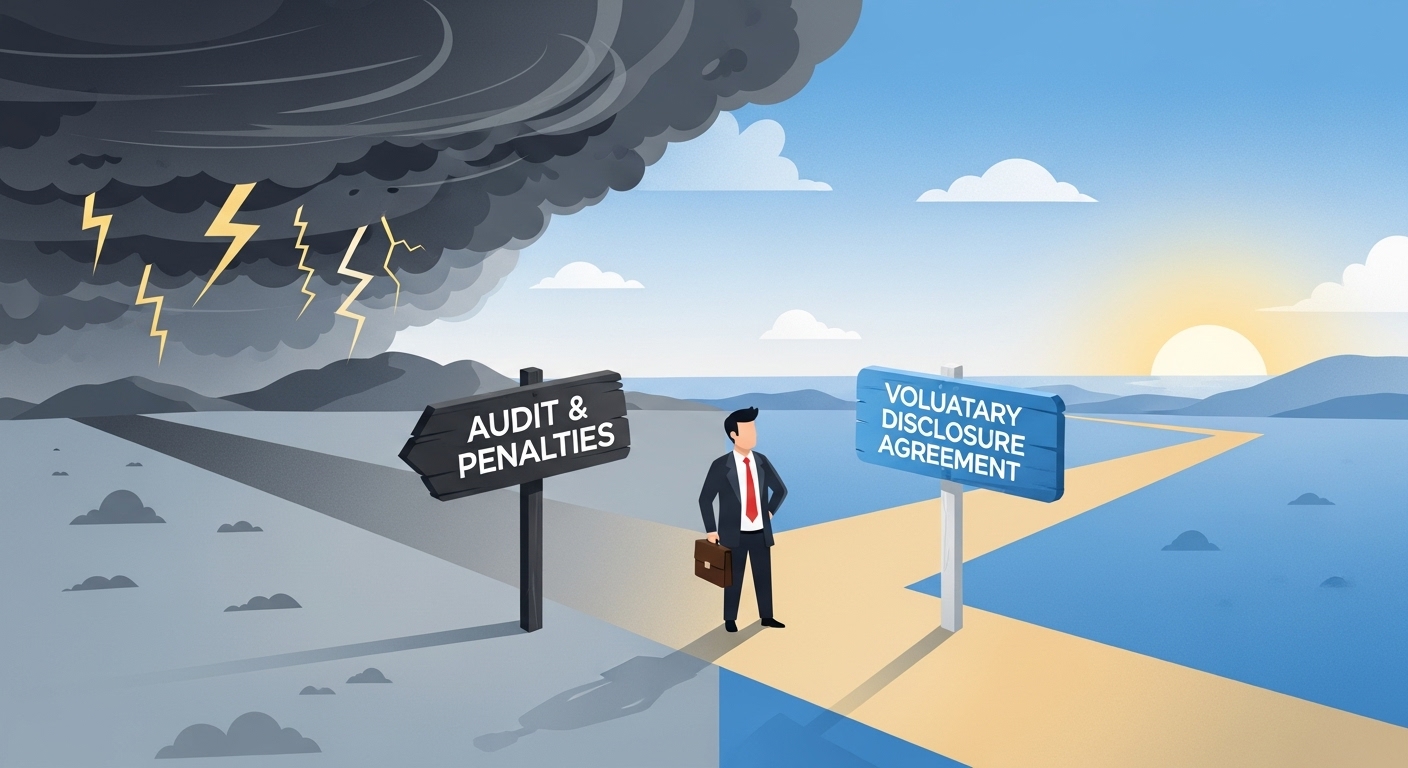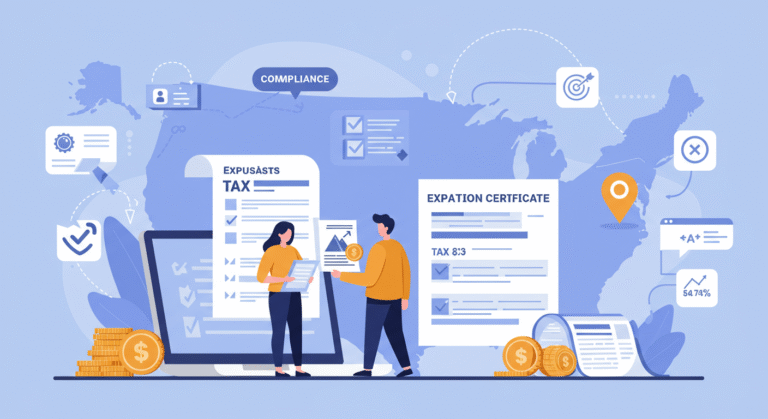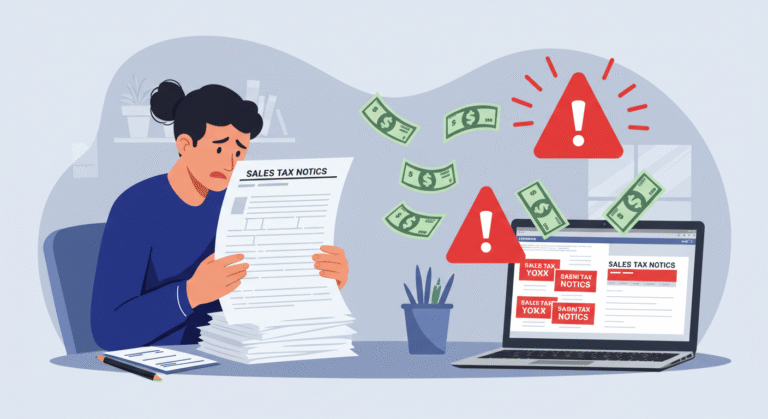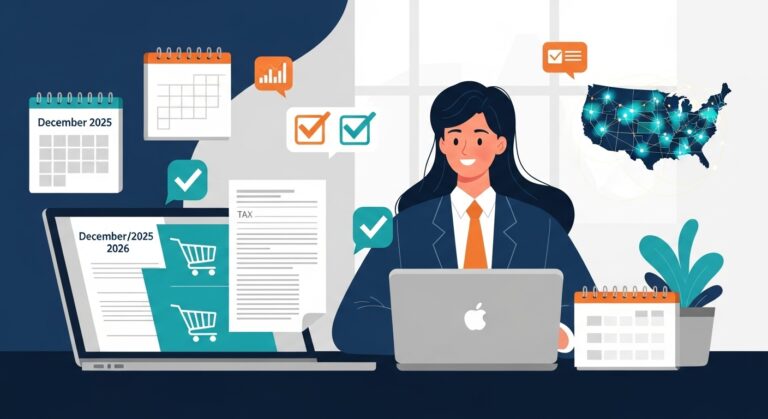Sales tax for SaaS businesses is one of the most confusing and overlooked areas of tax compliance in the U.S. Many software companies mistakenly assume that because they operate entirely online, they’re off the hook for collecting and remitting sales tax. Unfortunately, this couldn’t be further from the truth. Over the last decade, more states have begun taxing digital products and cloud-based services, putting SaaS providers squarely in the crosshairs of tax authorities. Understanding whether your SaaS product is taxable, where you have nexus, and how to register is crucial. In this article, we’ll break down everything you need to know about SaaS sales tax—and how you can stay compliant while growing your business.
What is SaaS and Why Does Sales Tax Apply?
SaaS vs. Traditional Software
SaaS (Software as a Service) is fundamentally different from traditional software. Instead of purchasing a copy of software and installing it on a device, users subscribe to a cloud-based service that is accessed over the internet. This subscription model often includes automatic updates, remote access, and ongoing technical support, making it highly attractive for both consumers and businesses. However, this shift to subscription-based software has created confusion around taxability. Traditional software, when delivered physically or downloaded, has long been considered taxable in many states. SaaS, by comparison, falls into a gray area because it isn’t a tangible product, but it still provides value that states are increasingly eager to tax.
Why States Are Taxing Digital Products
States are always looking for ways to increase tax revenue, and digital products have become a prime target. As more businesses move to the cloud and consumers rely on subscription services, the revenue once generated by taxing tangible goods has declined. To compensate, states are expanding their definitions of taxable goods and services to include SaaS. Many argue that SaaS delivers the same functionality as traditional software and should be taxed accordingly. Additionally, as businesses increasingly use SaaS solutions in daily operations, states view these services as taxable business utilities. The result is a patchwork of rules that vary from state to state, making compliance a moving target.
Is SaaS Taxable? It Depends on the State
SaaS Taxability by State
The taxability of SaaS depends almost entirely on the state in which your customer resides. Some states clearly classify SaaS as taxable, especially if it is used for business purposes. Others still exempt SaaS or have vague rules that don’t directly address cloud software. For example, states like New York, Texas, and Pennsylvania treat SaaS as a taxable digital service. In contrast, states like California generally do not tax SaaS when sold to individual consumers. This inconsistency makes it difficult for SaaS businesses to adopt a one-size-fits-all tax strategy. Instead, compliance requires a state-by-state approach based on current tax laws and interpretations.
Examples of Taxable vs. Non-Taxable States
Let’s look at some examples. In New York, SaaS is taxable regardless of whether it’s sold to businesses or individuals. If your company has customers in New York, you must collect sales tax. In Texas, SaaS is also taxable, and failing to comply could trigger audits and penalties. Massachusetts and Washington also have clear guidance making SaaS subject to sales tax. On the other hand, California typically does not tax SaaS unless it includes significant services that involve manual support or customization. Similarly, Florida exempts SaaS unless bundled with taxable services. The challenge? These laws change frequently—and enforcement is increasing.
The Role of Nexus in SaaS Sales Tax
Physical Nexus vs. Economic Nexus
Nexus is a legal term that means your business has a sufficient connection to a state that requires you to collect and remit sales tax there. Physical nexus is established when your business has an office, employee, warehouse, or inventory in a particular state. But since the Supreme Court’s Wayfair decision in 2018, states can also enforce economic nexus, which doesn’t require physical presence. Instead, if your sales into a state exceed a certain threshold — often $100,000 in revenue or 200 transactions annually — you’re required to register and collect sales tax. This new standard has dramatically increased the number of states in which SaaS companies are required to file.
Remote Sellers and Multistate Exposure
As a SaaS provider, chances are you’re selling across multiple states; maybe even nationwide. That means you could unknowingly create nexus in dozens of jurisdictions through your remote sales alone. Once you cross an economic threshold, you’re legally obligated to collect and remit sales tax in that state. Failing to do so not only results in back taxes but also hefty penalties, interest, and possible audits. Many SaaS founders find out too late that they should have been collecting tax in five, ten, or even twenty states. Proactively tracking where you have nexus is key to staying compliant and avoiding financial surprises.
Common SaaS Tax Compliance Mistakes
Misclassifying Your Product
One of the most common and dangerous mistakes SaaS companies make is misclassifying their product. Some businesses treat their SaaS as a nontaxable service when, in fact, it meets their state’s definition of a taxable digital good. Others fail to understand the difference between pure SaaS, hybrid offerings (SaaS plus support), or platform-as-a-service (PaaS), all of which may have different tax implications. Classification errors often stem from over-reliance on automation software or outdated interpretations of tax rules. Unfortunately, misclassification can lead to under-collection of tax and years of liability.
Not Registering in the Right States
If you’ve triggered nexus in a state but failed to register, you’re non-compliant—and exposed. Many SaaS companies believe that because they don’t have a physical location in a state, they aren’t required to register. But with economic nexus laws now in place, remote sales alone can create tax obligations. Not registering means you’re not collecting tax, which could lead to thousands of dollars in unpaid liabilities. Worse, if the state discovers the issue during an audit, you may not qualify for voluntary disclosure programs and could face steep penalties. A proactive registration strategy is a must.
Relying Solely on Automation Software
Sales tax software tools like Avalara or TaxJar are useful—but dangerous if used in isolation. These platforms can help automate rate calculations and filing, but they often misclassify products or overlook complex state-specific exemptions. SaaS tax laws are nuanced, and software alone can’t make judgment calls about legal interpretations. Businesses that rely solely on automation risk falling out of compliance without even knowing it. The best approach is combining automation with expert oversight to catch the gaps and ensure every state’s unique requirements are met.
How to Stay Compliant as a SaaS Business
Sales Tax Registrations
Once you identify the states where you have nexus, the next step is to register for a sales tax permit in each one. Registration requirements vary by state, and some states charge fees or require bond deposits for new filers. Registering before you’re caught out of compliance can save you from massive penalties. It’s important to keep track of your sales on a monthly basis so you know when you cross a nexus threshold. Timely registration also helps maintain your credibility during due diligence, especially if you’re seeking funding or planning an acquisition.
Collecting and Remitting Sales Tax
After registration, you’ll need to update your billing platform or checkout process to collect the appropriate sales tax in each state. This requires calculating the correct rate, which can vary not just by state, but by city and county as well. Then, you’ll need to remit the tax to the appropriate state authority, typically on a monthly, quarterly, or annual basis. Filing deadlines and requirements differ, so it’s crucial to maintain a calendar and system for timely submissions. Missing a filing, even if you collected tax, can result in penalties.
Getting Help from a Human Expert
SaaS tax compliance is simply too complex to handle alone or leave entirely to software. A human expert understands your business model, product offerings, and the specific laws in each jurisdiction. They can help you navigate gray areas, register correctly, and avoid overpaying or under-collecting. At My Sales Tax Firm, we provide tailored guidance, represent clients in audits, and act as a long-term compliance partner. Having a trusted advisor can give you peace of mind and free you up to focus on what matters most—growing your SaaS company.
Why My Sales Tax Firm is the Right Partner for Your SaaS Tax Compliance
At My Sales Tax Firm, we specialize in working with SaaS companies just like yours. Our team doesn’t just apply generic tax solutions—we develop customized strategies based on your product, customer base, and growth stage. We perform nexus reviews, handle multistate registrations, file your returns, and guide you through audits if they arise. And unlike most automation platforms, we offer human intelligence and hands-on support that adapts to changes in law and your business. Let us help you stay ahead of compliance issues before they become a legal and financial burden.
Conclusion
Sales tax for SaaS companies is no longer optional; it’s a must-have compliance area that can make or break your business. From state-specific taxability rules to the complexities of nexus and registration, the stakes are high. The good news? You don’t have to navigate it alone. With expert support, you can stay compliant, avoid penalties, and focus on scaling your SaaS platform. Contact My Sales Tax Firm today for a free consultation and see how we can tailor a compliance plan that keeps you safe and growing.
